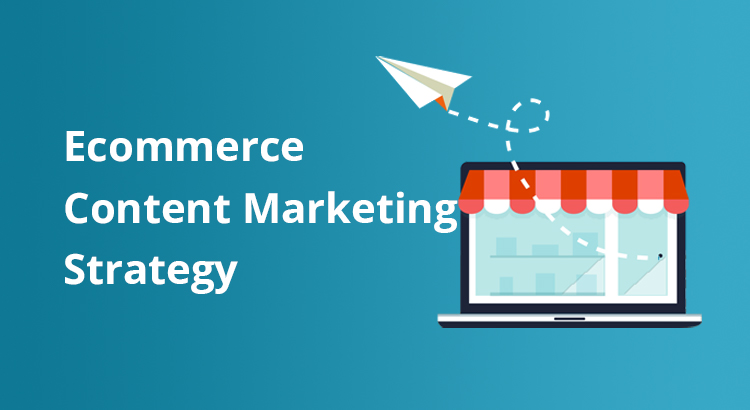A well-crafted ecommerce content marketing strategy can be the differentiating factor for businesses seeking to thrive in the online marketplace. This strategy revolves around delivering valuable content tailored to meet the specific needs and preferences of potential customers.
Related Article: Content Marketing: Strategies and Benefits
What Is Ecommerce Content Marketing?
Ecommerce content marketing is a strategic approach focused on providing informative, engaging, and relevant content to potential customers at various stages of their purchasing process.
Whether through blog posts, videos, social media content, or product descriptions, the goal is to create a seamless and enriching experience for consumers while promoting brand visibility and driving sales.
Useful Article: Ecommerce Marketing: Strategies And Tools
Why Is Ecommerce Content Marketing Important?
The benefits of ecommerce content marketing are listed below.
1. Improved Search Engine Rankings
Quality content enhances your website’s visibility on search engines like Google, helping you rank higher and attract more organic traffic, ultimately boosting your online presence and driving growth.
2. Increased Website Traffic
By producing high-quality content tailored to specific audiences and keywords, you can improve your website’s ranking on search engine results pages, leading to a significant increase in traffic and potential customers.
3. Content Abundance
A rich website full of valuable content showcases your expertise and builds trust with customers, encouraging them to explore your offerings further and increasing the likelihood of conversion.
4. Lead Generation
Quality content engages visitors throughout their journey, from initial discovery to final purchase, facilitating the conversion of traffic into leads and ultimately customers, thus accelerating the sales process.
Learn More: How to Use Content Marketing for Lead Generation?
5. Enhanced Conversion Rates
Content marketing significantly boosts conversion rates by providing valuable information that resonates with your audience, leading to increased trust, engagement, and ultimately, more sales and revenue.
Useful Article: Conversion Rate Optimization: Turning Clicks into Customers for Small Businesses
6. Greater Engagement
Content marketing fosters meaningful interactions with your audience, encouraging them to engage with your brand across various platforms, driving social media traffic and nurturing lasting relationships with customers.
7. Brand Recognition
Consistent content creation enhances brand visibility and recognition, establishing your brand as a trusted authority in your industry and forging emotional connections with your audience.
8. Improved Customer Service
Quality content serves as a proactive customer service tool, providing valuable resources and answers to frequently asked questions, thereby reducing support inquiries and enhancing the overall customer experience.
9. Enjoyable Consumer Experience
Content marketing offers a non-intrusive and enjoyable experience for consumers, attracting them with valuable information rather than intrusive ads, thus fostering positive brand associations and loyalty.
10. Cost Savings
Content marketing is not only more enjoyable but also more cost-effective than traditional marketing methods, offering higher returns on investment and long-lasting benefits, including increased brand visibility and customer engagement.
Elements of an Ecommerce Content Strategy
1. Ensure Your Content Is Visually Appealing
In ecommerce, visual content is paramount for showcasing products effectively. High-quality videos and images provide buyers with detailed insights into product quality and suitability, driving engagement and sales.
Related Article: The Power of Visuals: Are You Igniting Your Content?
2. Double Down on the Channel that Works Best for You
Identify and invest in content channels that resonate with your audience, whether it’s blogs, YouTube, Instagram, LinkedIn, or TikTok, to maximize engagement and reach.
3. Use Video to Build Your Brand Character
Video content is ideal for showcasing products, sharing testimonials, and engaging customers. Tailor your video content to different platforms like YouTube, TikTok, or Instagram for maximum impact.
4. Optimize Your Presence on Amazon
Enhance product listings on Amazon with A+ content and Amazon Posts to improve visibility and competitiveness, ensuring alignment with your brand identity and values.
5. Partner with Influencers and Experts
Collaborate with influencers and industry experts to leverage their authority and reach, enhancing your brand’s credibility and visibility in the market.
6. Pay Attention to the Marketing Tactics of Marketplaces
Understand and adapt to the marketing strategies of ecommerce marketplaces to maximize your brand’s exposure and sales potential.
7. Explore Live Shopping and Lookbooks
Utilize live shopping videos and digital lookbooks to showcase your products in an engaging way, particularly effective in fashion ecommerce to drive sales and brand engagement.
8. Make SEO a Central Part of Your Plan
Implement on-page and off-page SEO strategies to improve your website’s visibility and drive organic traffic, focusing on keyword optimization, site speed, and link building.
9. Tell Your Story in Captivating Blog Posts
Use storytelling to connect with your audience emotionally, sharing your brand’s journey, values, and customer success stories to build trust and loyalty.
Useful Article: How to Start a Blog: A Step-by-Step Guide
10. Include Social Proof Throughout Your Site
Integrate social proof, such as customer reviews and ratings, across your ecommerce site. These authentic testimonials enhance trust and credibility, encouraging visitors to make confident purchasing decisions.
Final Thoughts on Ecommerce Content Marketing Strategy
Ecommerce content marketing involves various elements aimed at engaging, informing, and converting consumers. Using these ecommerce content marketing strategies and adapting to evolving consumer preferences is essential for success in online store business.


